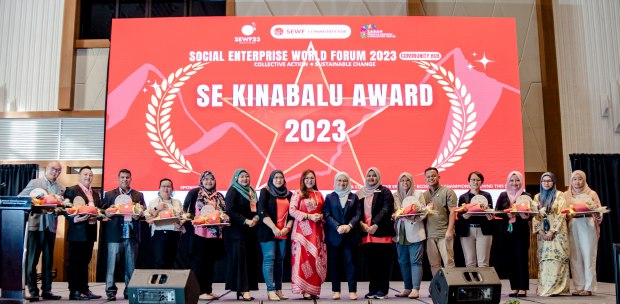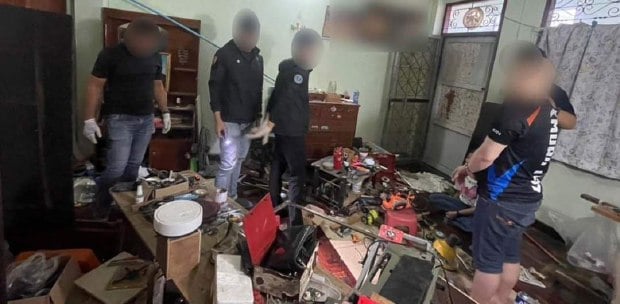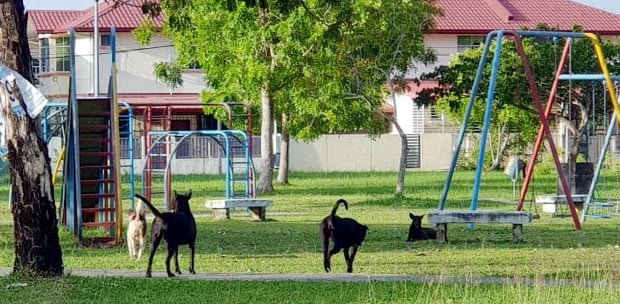IT'S such a clever name.
Tumboh. Grow. Where social enterprises are concerned, it's a name that suggests a fresh new perspective on an already jaded world. After all, a little growth is just what the doctor ordered.
"It's certainly the right name," agrees Amir Omar Anuar. The cherubic smile is contagious. "The idea behind Tumboh is that our products have to be good for the body, good for society and good for the soul."
Products, he continues, that will be sold with the idea of giving back to local communities. "I do think the act of giving just makes us feel better. It feels as though we're doing something and that we're part of a collective effort," says Amir, tone earnest.
Together with close friend Lam Min Yong, Tumboh was set up to help underprivileged communities in this nation. As the coronavirus Covid-19 spreads across the globe, it appears to be setting off a devastating feedback loop with another of the gravest forces of our time: economic inequality.
Talk to any charitable organisation these days and they will tell you that they have never seen a year like 2020 or 2021, with the Covid-19 pandemic and the hardships it has wrought.
Tens of thousands of people are out of work or newly living in poverty, and many others are socially isolated, creating a greater-than-ever demand for services. Amir describes the present moment as "a tsunami of human need", adding: "People are suffering everywhere."
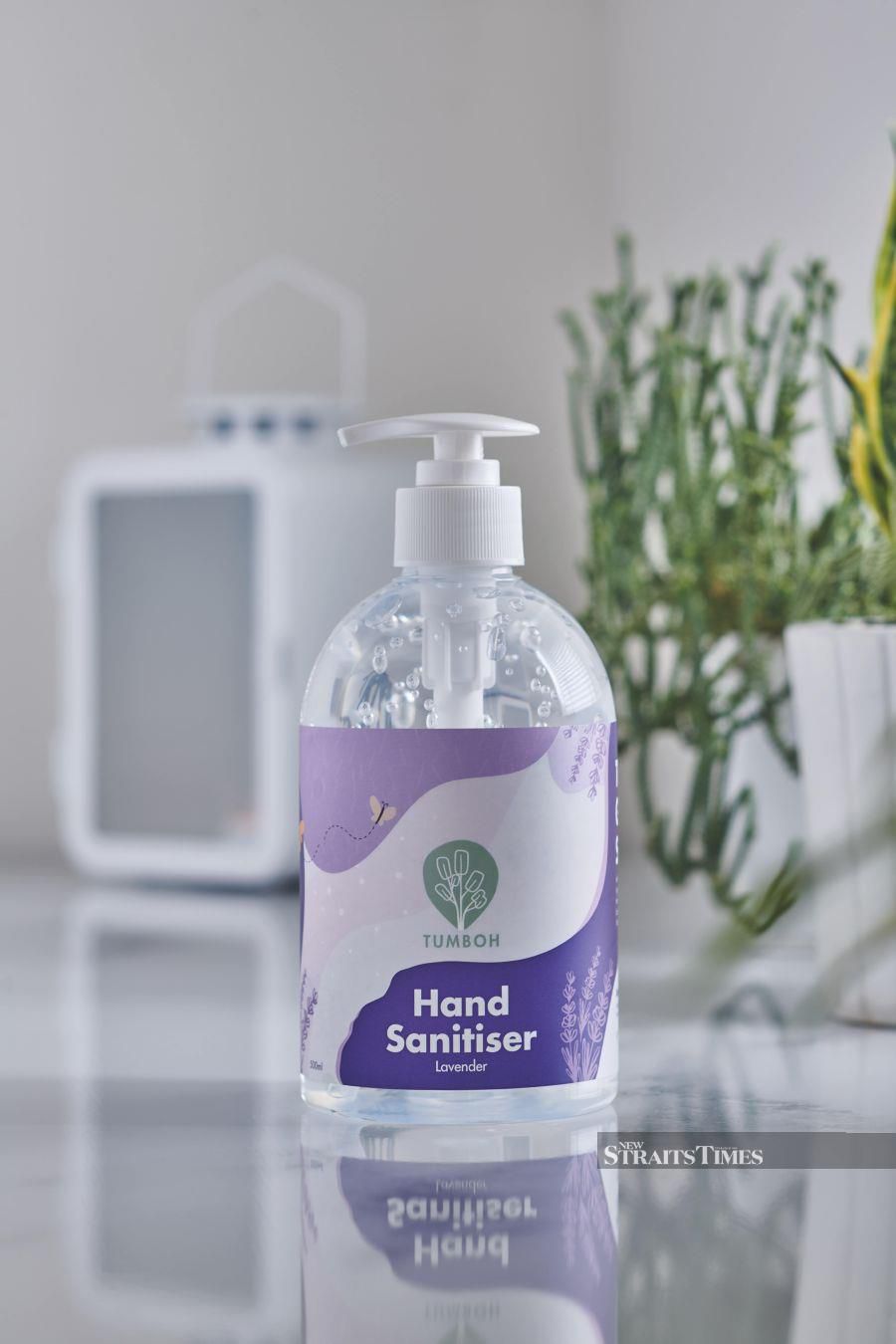
Tumboh is set to lend a helping hand. Until December 2021 this year, it will be donating 384 bottles of hand sanitisers, 1,750 packets of face masks, and all the contributions they collect from the sale of their hand sanitisers and no-sugar-added granola to Need to Feed the Need (NFN), a soup kitchen that distributes food and other basic necessities to the homeless and urban poor of all age groups in Kuala Lumpur.

"We're not looking to necessarily put a Band-Aid on the major crisis that is in front of us," explains Lam, before adding: "It's about building the world we want to see."
These thoroughly modern do-gooders dress like venture capitalists. They talk like them. They even think like them. They don't wear ponytails, tattoos or sandals. They don't devote any energy to countercultural personal style, unless you consider excessive niceness a subversive fashion statement.
They're just ordinary men wanting to do something tangible during the pandemic.
OF BROTHERHOOD AND BROMANCES

Launching a business isn't easy, which is why having a co-founder can often make things a little smoother, especially if that co-founder is your best friend. While many professionals warn against going into business with close friends, there are plenty of examples that prove it can work. Just take a look at companies such as Airbnb and Ben and Jerry's. These successful businesses started out with a friendship before a brand, and look how they turned out.
"Is it easy to start a business with a friend?" I ask curiously. They exchange looks before chuckling and nodding. Lam quips: "I mean, we've known each other forever. I've come to appreciate two things about him — he works just as hard as I do, and his skills complement mine."
The easy camaraderie between the two men is a result of an 18-year-old friendship that began in high school. "Oh, we've known each other forever," reveals Amir, before Lam chips in with a chuckle: "Since Form One, actually!"
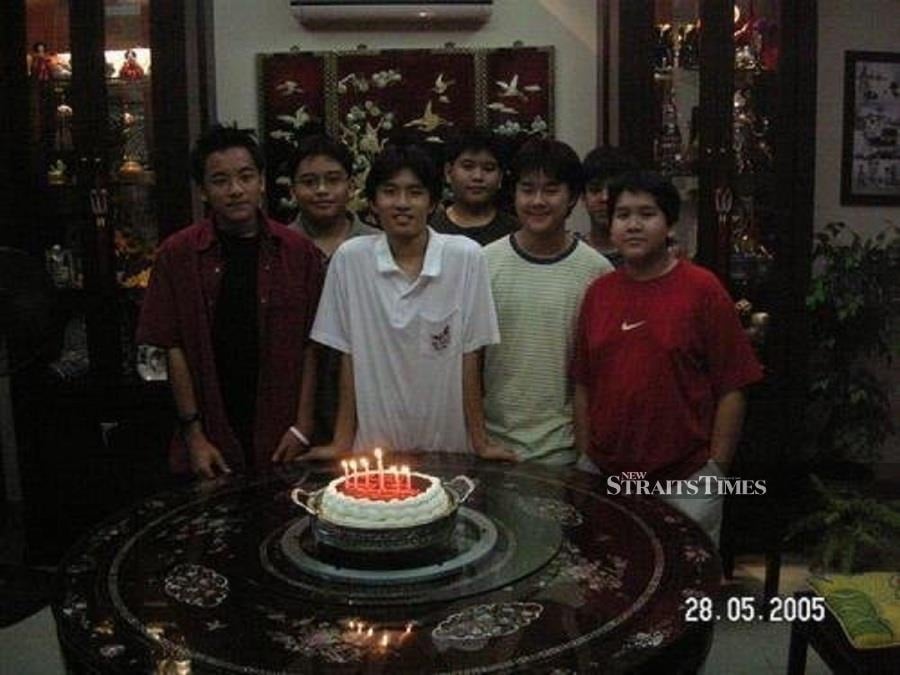
"I can't remember how we first met," muses Amir, frowning. "We were classmates for four years before Min Yong (Lam) left for Canada in Form Four." But they did hang out, he says, quipping: "I couldn't avoid him. The classes in Sri KDU where we studied were small!"
"For men to really become best friends, there has to be an element of adventure," says American novelist and essayist Michael Chabon, adding: "You have to set out to accomplish something, and in the course of failing or succeeding you become friends."
It was the love for online games and paintball that brought the two boys together. "We took part in competitions, of course. Those were definitely definable moments that cemented our friendship during our school days!" recalls Lam.
But the similarities ended just there. "We don't have much in common," admits Amir, continuing: "Even our music taste is very different. I love indie and rock music. Min Yong here on the other hand," he points to Lam chuckling, "… loves elevator music. You know, the sentimental pop-rock type!"
They break into laughter again.
Both Amir and Lam kept the friendship going through the years and despite different geographical locations. "We'd keep in touch over Skype to catch up," recalls Amir. "We were great friends anyway and that bond remained strong over the years."
Their lives changed but the friendship remained reassuringly the same. They were each other's, to use a term coined by Geoffrey Greif, author of Buddy System: Understanding Male Friendships, "must friend". A "must friend" is someone who is part of the inner circle whom you can confide in and rely on.
Lam was definitely a "must friend", agrees Amir. "We would still meet up and conduct conversations laced with good-natured ribbing and inevitable discussions on working together."
Ah, bromance at its best, I observe. They exchange grins. "Well, our wives have to put up with it," confesses Lam, before adding: "Our families had adopted the both of us because we were permanent fixtures at each other's houses. Now that we're both married, our wives are seeing a lot of us every day!"

It's hard to stay apart. After all, Amir went on to join Lam at the latter's family business after working for an accounting firm for a few years. "He told me, 'Amir, why don't you come and work with me?' and I simply said okay!" recounts Amir blithely, his grin wide.
STARTING A MOVEMENT
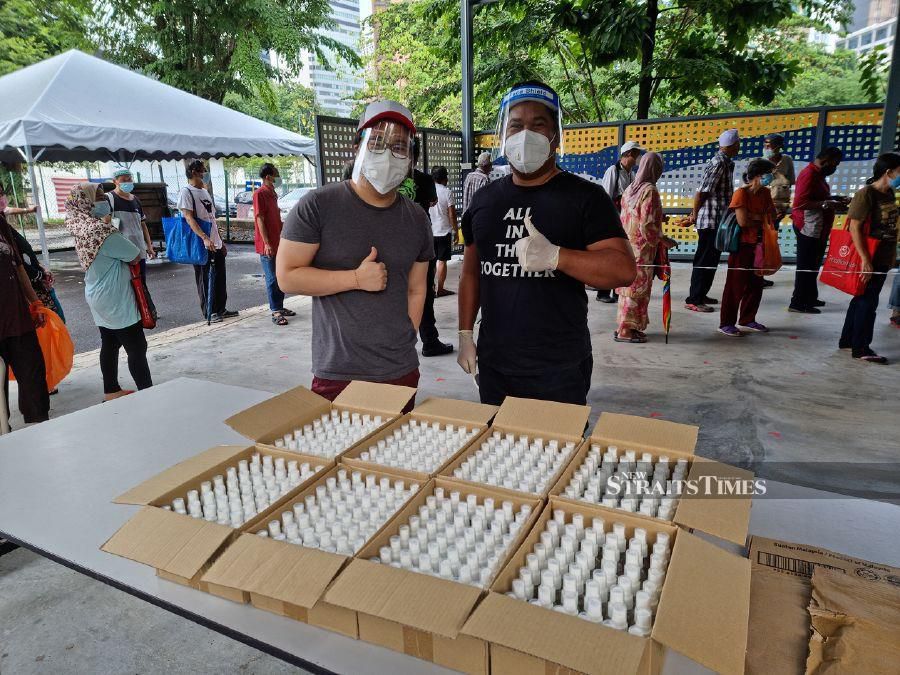
The desire to give back goes back a long way, the affable duo tells me. "Both of our families were always involved in charity work in one way or the other," continues Amir, adding: "So, it was really a part of our DNA growing up."
At the height of the pandemic situation last year, Lam was eager to start a project that involved giving back to society. "It's the pandemic lah," he says simply. "There's so much we can do to help. I mean, if we give someone money, how long can that go on, and how is that sustainable in the long run?"
With the economy still struggling, it may seem like an impossible time to start a do-good social venture. It can be hard enough to operate any business profitably — let alone one that also tries to improve the world.
But both Amir and Lam believe that the tough times may be increasing interest in social ventures. "I believe that the current pandemic actually has resulted in more people taking interest in investing in companies that are doing the right thing right from the start," observes Amir.
It is definitely a challenge, the 31-year-olds agree vehemently. "Our goal is definitely to get the business rolling so that we can start hiring the underprivileged," explains Amir, looking earnest.
So, what is the business about then? I couldn't help asking. "For any product we sell, we commit a certain amount that goes back to deserving causes," replies Lam.
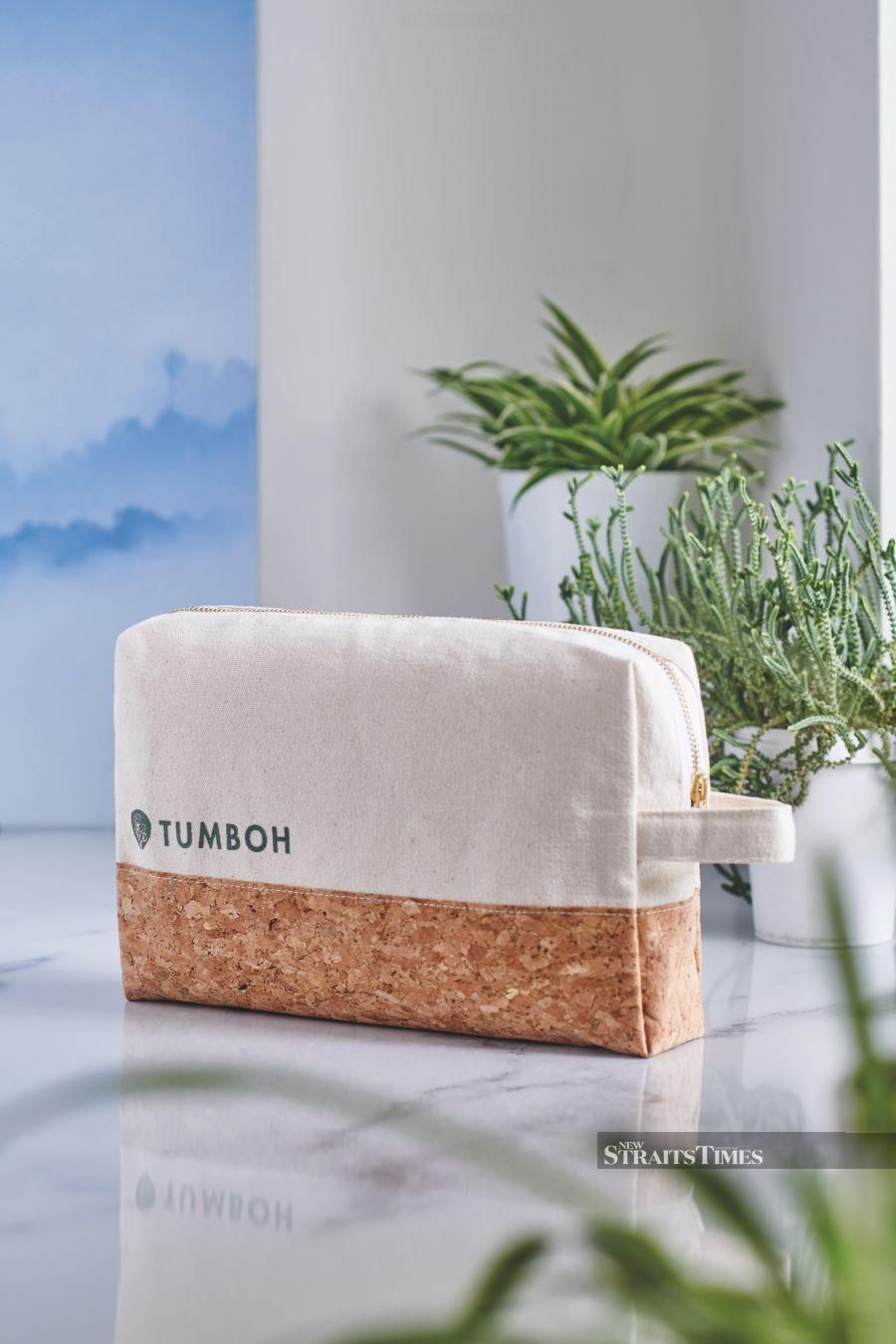
Currently, Tumboh sells four types of sanitisers, disposable 3-ply facemasks in various colours and a handmade bag. The latter is part of their collaboration with Kommuniti Tukang Jahit (KTJ), a platform that provides certified upskill training targeted at the B40 women community. Tumboh's collaboration with KTJ contributed over RM5,000 to KTJ's community of underprivileged women.
Tumboh also recently added a special no-sugar-added granola mix into their expanding list of products. Generous Granola is a special recipe created by Aiman Anuar, Amir's talented fraternal twin, who is also Tumboh's community and communication manager.
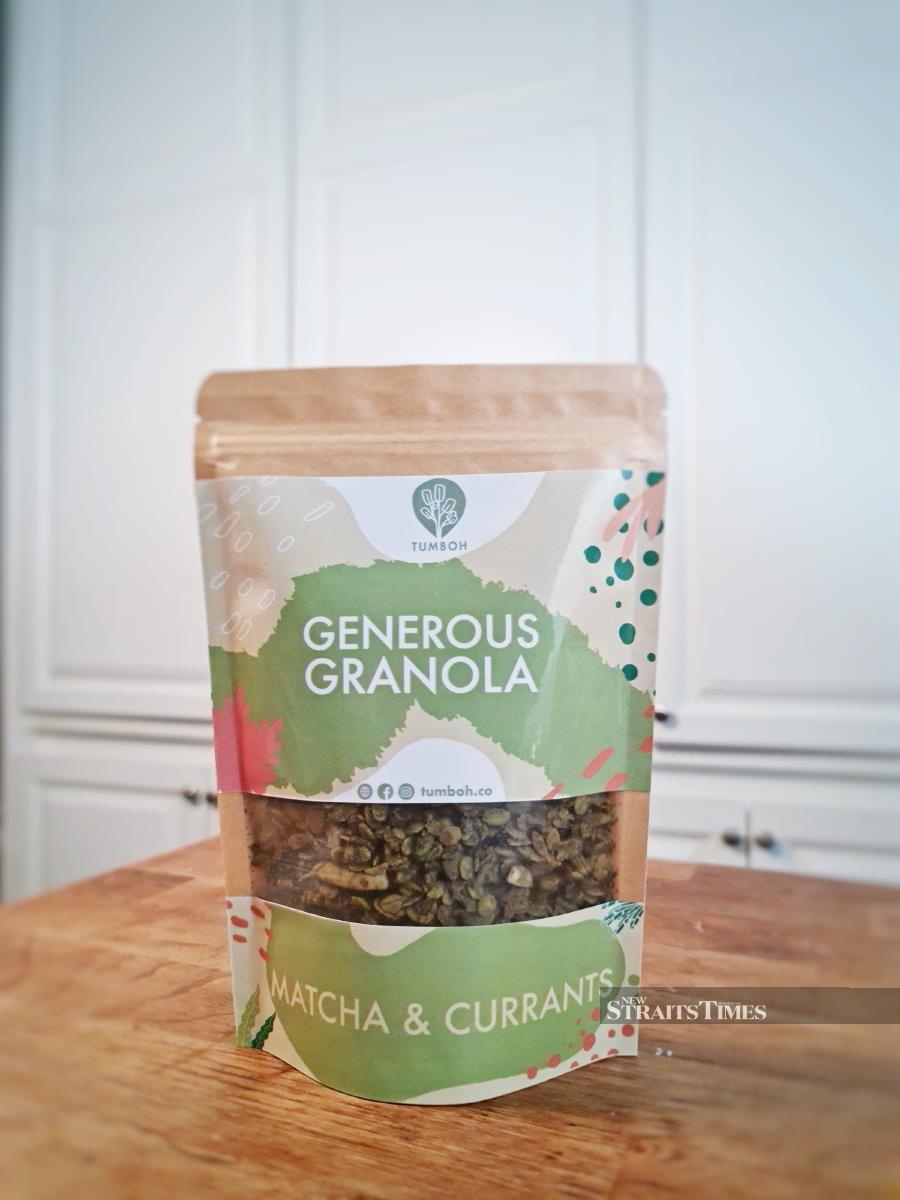
"We want to ensure that the business part is taken care of," says Lam, adding: "But before we do that, we have to send a message that we are serious about making this work, and making Tumboh, well, grow!"
To do that, the team decided to donate RM23,000 worth of their products to their official beneficiary for 2021this year, Need to Need the Need (NFN). Knowing that their products would take a while to gain some traction, they decided that the best way to proceed was to give what they had — products that could help the underprivileged stay protected during the pandemic.
"We realised that we didn't need to wait. We wanted to start helping as soon as possible. Even if we don't have significant sales, we want to make a difference with our brand. That's what matters to us most," says Lam.
In the grip of the Covid-19 pandemic, Tumboh is intent on providing a lifeline to many vulnerable Malaysians. As the health crisis and its economic disruption eat away at the group's revenues, the question is whether anyone will throw a lifeline to the rescuers.
"There are many barriers to getting the business moving," admits Lam, adding: "The new normal has greatly affected the way many businesses are conducted. There isn't a road map to success, and the journey can be full of bumps. We have to constantly think out of the box. But we're determined to see it through."
Most governments were caught off-guard when the pandemic hit. They scrambled to do what they thought was best — lockdowns, intense controls, among others, because they had no idea what would work.
But for the average person in a household or community, life has to go on. People really need food, water, information, health in addition to other services. That's where communities and social enterprises like Tumboh come to the rescue.
The timing is right, insists Amir and Lam, to set up an enterprise in the midst of such turbulence. They can help, and they're willing to put in the hard work. "It seemed like there's no better time because the world is so uncertain," says Amir, smiling gently, before concluding: "In a way, Covid-19 kind of gave permission to throw caution to the wind."
To find out more about Tumboh, email the team at [email protected] or visit their social media pages:
1. Instagram: @tumboh.co
2. Facebook: @tumboh.co
You can also email their Communication and Community manager Aiman Anuar at [email protected].



